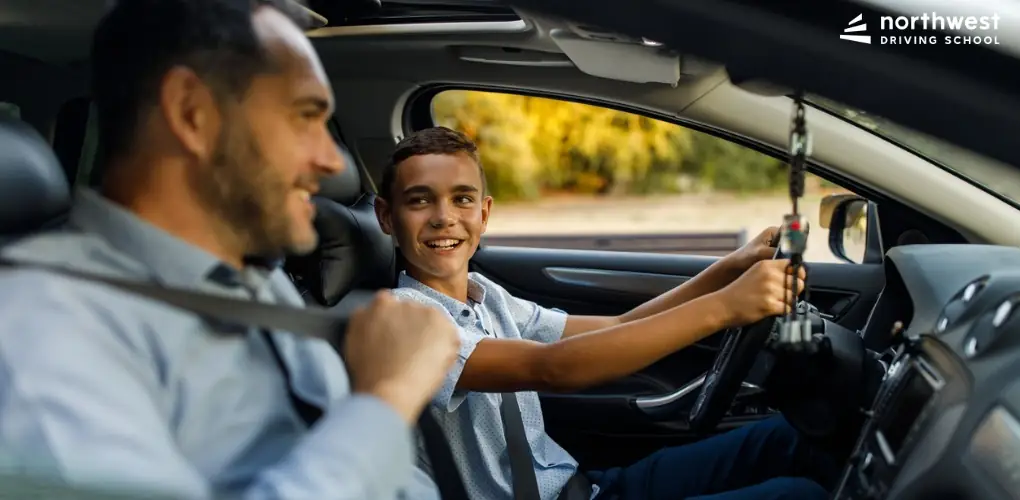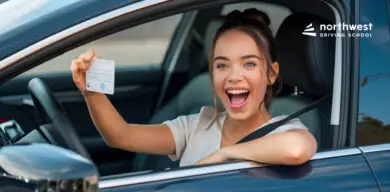- Driving School
Why It’s Never Too Late to Learn to Drive

For most people, the image of a learner driver is a person in their late teens and early twenties. However, data from the Driver and Vehicle Standards Agency (DVSA) shows that an increasing number of people are learning to drive in their 30s and 40s.
This shows that it’s always possible to learn how to drive and embrace the freedom of having your driving license. There are also many advantages to learning to drive late in life, allowing you greater freedom for career advancement, family convenience, and the simple ability to go where you want, when you want.
So, if you’re over thirty and considering learning to drive, continue reading to discover why it’s a positive and straightforward step to take.
Read More: Late-in-life Driving Lessons: Is It For Me?
Table of Contents
- The Advantage of Maturity
- A Better Understanding of Your Own Learning Style
- Navigating the Practicalities
- There’s Never Been a Better Time to Learn to Drive
- How Do I Learn To Drive In My 30s
- Choose The Right Driving School
- Choose the Right Kind of Driving Course For You
- Choose Between Manual and Automatic
- Never Too Late to Learn to Drive!
The Advantage of Maturity
If you’re worried that learning to drive later in life is somehow a disadvantage, rest assured, it’s not. It’s quite the opposite. With maturity comes patience and a little more self-confidence than your average 17-year-old. This can be a significant advantage when it comes to learning to drive, as you’re more likely to drive more cautiously and responsibly, ensuring your safety and the safety of others on the road.
Statistics from the National Highway Traffic Safety Administration show that younger drivers tend to take more risks on the road, even when learning to drive. This means, at best, a more extended period of learning to drive and, at worst, the risk of an accident.
A Better Understanding of Your Own Learning Style
As someone with a little more life experience, you’ll better understand your learning style, which is an excellent way to get licensed as quickly as possible. The best driving instructors will be able to adapt to your particular learning style and communicate with you in a way that makes you feel comfortable and supported. They can only do this if you’re aware of your learning style in the first place.
Cost is always a factor when it comes to learning how to drive. No matter how cost-effective your driving lessons are, you will almost certainly be better positioned to pay for them in your 30s than you were when you were a teenager. While your responsibilities might have increased, you’ll probably also have more control over your timetable, enabling you to book lessons when they are more convenient for you and learn at your own pace.
There’s Never Been a Better Time to Learn to Drive
When it comes to support for your learning process, there has never been a better time to learn to drive than right now. The connectivity provided by the internet means you can shop through local driving schools and independent instructors, chat with other learner drivers, look up helpful tips and hints, and even check what testing routes your DMV uses so you can drive them in advance.
How Do I Learn To Drive In My 30s
Now that we’ve covered the many benefits of learning to drive in your 30s and above, let’s look at some practice advice on how to go about earning your license:
Choose The Right Driving School
The first step in learning to drive is to choose the right driving school. Ideally, you’ll want to find one in your local area that is accredited by your local DMV. Before signing up for lessons, look for reviews of their service. Most good schools will have a whole range of glowing reviews that are a better sign of their quality than any amount of marketing.
Finally, you’ll want to find a school that offers an adaptable learning environment. Everyone learns in their own unique way, and finding a driving instructor who can adapt to your learning style is hugely important.
Here at Northwest Driving School, we operate on a student-first approach, ensuring that you learn at your own pace and in a manner that makes you the most comfortable and confident.
Choose the Right Kind of Driving Course For You
Once you’ve found the right school, you need to choose the kind of course you need. There are two primary types of driving courses: the traditional lessons and the more compact intensive driving course, each with its pros and cons.
- Traditional lessons are usually done twice weekly until the learner has reached the required 50 hours behind the wheel. However, there is no upper limit on the number of lessons you can take, and the frequency of lessons typically depends on the availability of both you and your driving instructor. The benefit of a traditional driving course is that you can learn at your own pace in your free time. The downside is that it takes longer to reach the required 50 hours to take your test.
- Intensive driving courses are generally one week long, with longer driving lessons every day. They aim to prepare you to pass your test in as little time as possible. The shorter timetable might suit people looking to get their license as fast as possible, but the truncated timetable does mean you’ll need to put aside more time for lessons, and the learning process is more intensive.
Which course best suits your needs will depend on your available time for driving lessons and how quickly you want to earn your license.
Read More: Is It Harder To Learn To Drive Later In Life?
Choose Between Manual and Automatic
In the past, there were compelling reasons why it was better to learn to drive a manual than an automatic. However, the advanced nature of modern automatic cars means the choice is now mostly down to the individual. If you plan on driving an automatic car, there’s no real reason not to learn to drive one.
Never Too Late to Learn to Drive!
Learning to drive is a significant milestone in your life, no matter how old you are, and it’s never too late to start your driving journey. All you have to do is contact NorthWest Driving School today to book your lessons.




